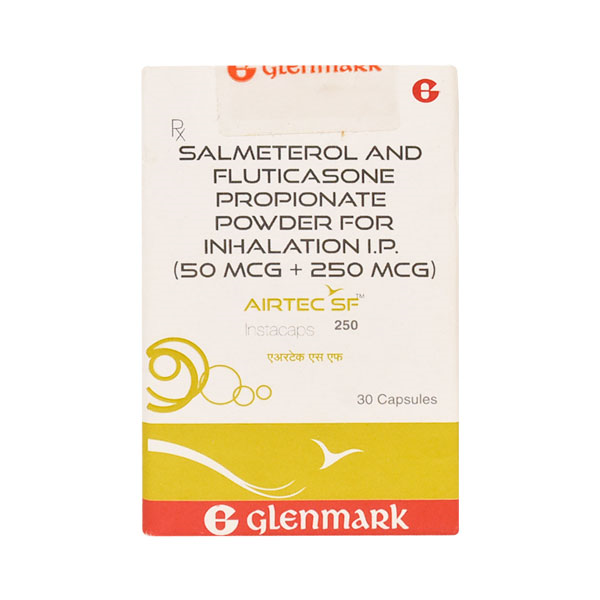Airtec SF 250 Instacap is a combination medication designed to help open the airways, making it easier to breathe. It is commonly prescribed for the management of asthma and chronic obstructive pulmonary disease (COPD)—a long-term lung condition that causes breathing difficulties due to airflow blockage.
This medicine works best when used regularly, as directed by your doctor. While some improvement may be noticeable within a few days, it can take several weeks to experience the full benefits. Even if you feel well and your symptoms are under control, it’s important to continue using Airtec SF 250 Instacap daily—this means the medication is working effectively in the background.
 Uses
Uses
- Treatment of Chronic Obstructive Pulmonary Disease (COPD)
- Treatment of Asthma
Benefits of Airtec SF 250 Instacap
In Treatment of COPD
Airtec nstacap works by relaxing the muscles in your airways, helping them stay open so air can move in and out more freely. With regular use, this medicine can improve your ability to perform daily activities and enhance your overall quality of life. It starts to work within minutes, and its effects can last for several hours. Do not stop using this medication unless advised by your doctor.
For Asthma
Airtec Instacap helps prevent asthma attacks. By reducing airway inflammation and keeping your breathing passages open, this medication helps you breathe easier and live more actively—without constant worry about asthma symptoms like wheezing, coughing, and breathlessness.
 How Airtec SF 250 Instacap Works
How Airtec SF 250 Instacap Works
Airtec Instacap is a combination of two active ingredients: Salmeterol and Fluticasone Propionate.
-
Salmeterol is a long-acting bronchodilator. It works by relaxing the muscles around the airways, helping to widen them. This makes it easier for air to move in and out of the lungs.
-
Fluticasone Propionate is a corticosteroid. It reduces inflammation by blocking the release of certain chemical messengers that cause swelling and irritation in the airways.
 Side effects
Side effects
- Cough
- Upper respiratory tract infection
- Nasopharyngitis (inflammation of the throat and nasal passages)
- Sinus inflammation
- Stomach discomfort
- Fungal infection of oro






